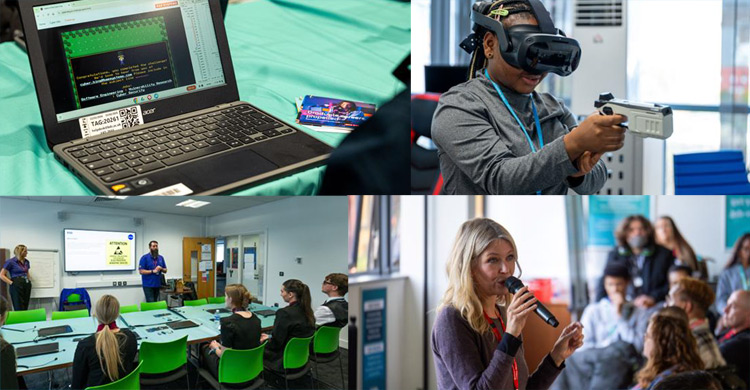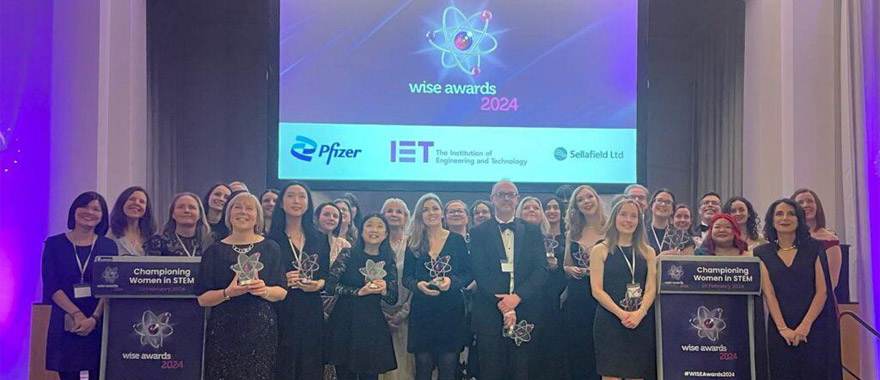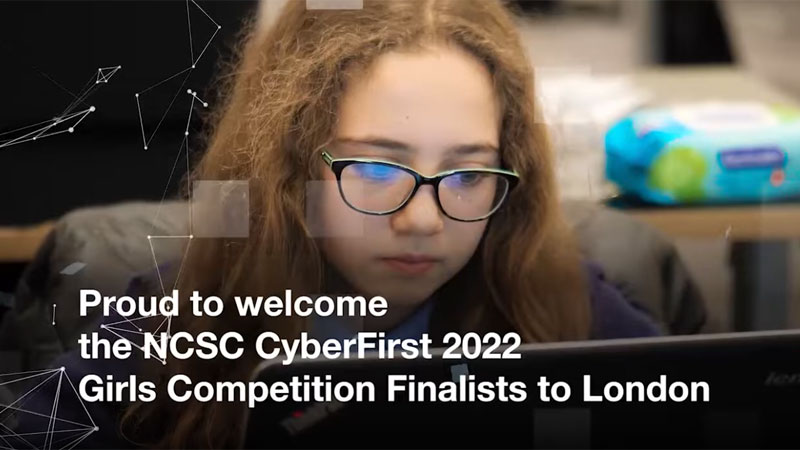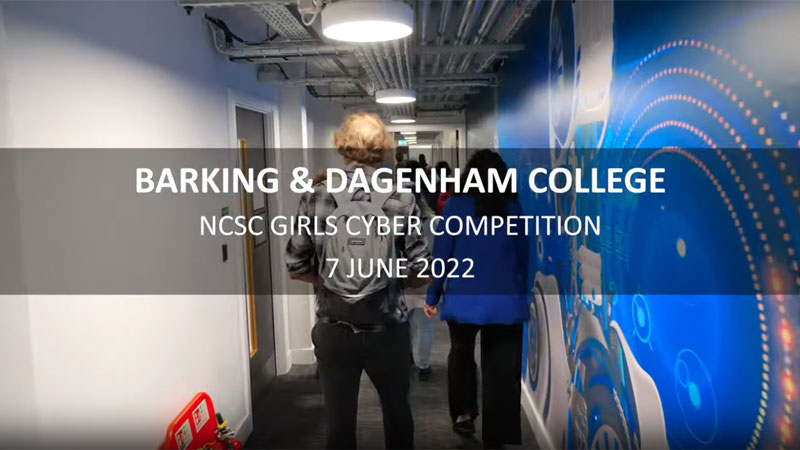Interactive Events
The CyberHub Trust organises & delivers Events where students can meet industry experts, including DigiTech and Cybersecurity companies, Advertising & Digital Media Agencies, AI specialists, etc. These events can take place at colleges, but sometimes also at company/business premises.
Our events allow students and teachers to meet, interact and work with our industry partners, covering a range of professions, including, for example, Cybersecurity Analysts, UX/UI designers, AI & Game designers, Film Makers, etc.
Take a look at our Events page to see some more on specific roadshows, events and other activities delivered by the CyberHub Trust.

Young People & Families
CyberFirst Girls Competition
The CyberFirst Girls Competition aims to support girls interested in a career in DigiTech & Cyber. The competition is a team event, hosted across England, Wales and Scotland. It consists of two phases — an online qualifying round to identify the top teams, and 13 simultaneous regional finals across the country.
We have facilitated regional ‘final’ events for NCSC CyberFirst Girls Competition, as well as follow-up DigiTech/Cyber Experiences aimed at the students who previously participated in the CyberFirst competition.
CyberFirst Schools

The CyberFirst Schools scheme has been hugely successful thanks to the support of local and global industries. Working with schools, universities, businesses and government bodies, its mission is ’to train tomorrow’s cyber security community’.
CyberFirst formally recognise organisations who are committed to providing a structured approach to excellence in Cybersecurity education and the Trust is pleased to be recognised as a CyberFirst Member.
Follow this link to find out more about CyberFirst Schools.
Cyber Explorers

At 11-14 years, young people really can be anything they want to be. The only certainty is that careers of the future demand digital skills. Initially started by the Department for Digital, Culture, Media and Sport (DCMS), Cyber Explorers is an initiative which showcases how the skills being taught in class are linked to real world situations, through an immersive, gamified learning experience. Cyber Explorers uncovers how digital, computing and Cyber skills are integral to successful career paths.
Government wants to ensure that there is a sustained supply of diverse and high-quality individuals joining the cyber workforce in the future and the Cyber Explorers Programme aims to inspire the next generation of Cyber Professionals and offer all young people the confidence and skills they need to explore career pathways in the sector.
We are pleased to be working with CyberFirst to introduce this Programme to a wider audience as part of our Community Outreach activities.
Follow this link to find out more about Cyber Explorers.

The Turing Trust

The Turing Trust refurbishes IT equipment, installs a range of educational software on these devices – and provides them to those who need it most.
In thirteen years they enabled access to computers for over 169,000 students across Africa, Asia & the UK. They believe that one day every child will be able to enjoy the transformative power of technology that Alan envisioned.
We are thrilled to be working with the Turing Trust to promote their Programmes to a wider audience, as part of our Community Outreach activities.
Follow this link to find out more about the Turing Trust.
WISE

Since then, it has helped a huge number of individuals, organisations, and businesses, and contributed to a wide range of campaigns to raise the profile of women and girls in STEM (Science, Technology, Engineering and Maths).
CyberHub Chair of Trustees Julia von Klonowski was named one of three finalists for the `WISE Outstanding Woman in Technology Award’ in 2024.
See below as our Chair Julia von Klonowski attended at a recent WISE ‘schools’ event.

At Risk Individuals

Programmes are organised to support such individuals, to develop their technical skills in a safe and positive environment, where they can be assessed and encouraged.
Special educational needs and disabilities

We work with organisations who are trained and accredited to work with people who have SEND.


